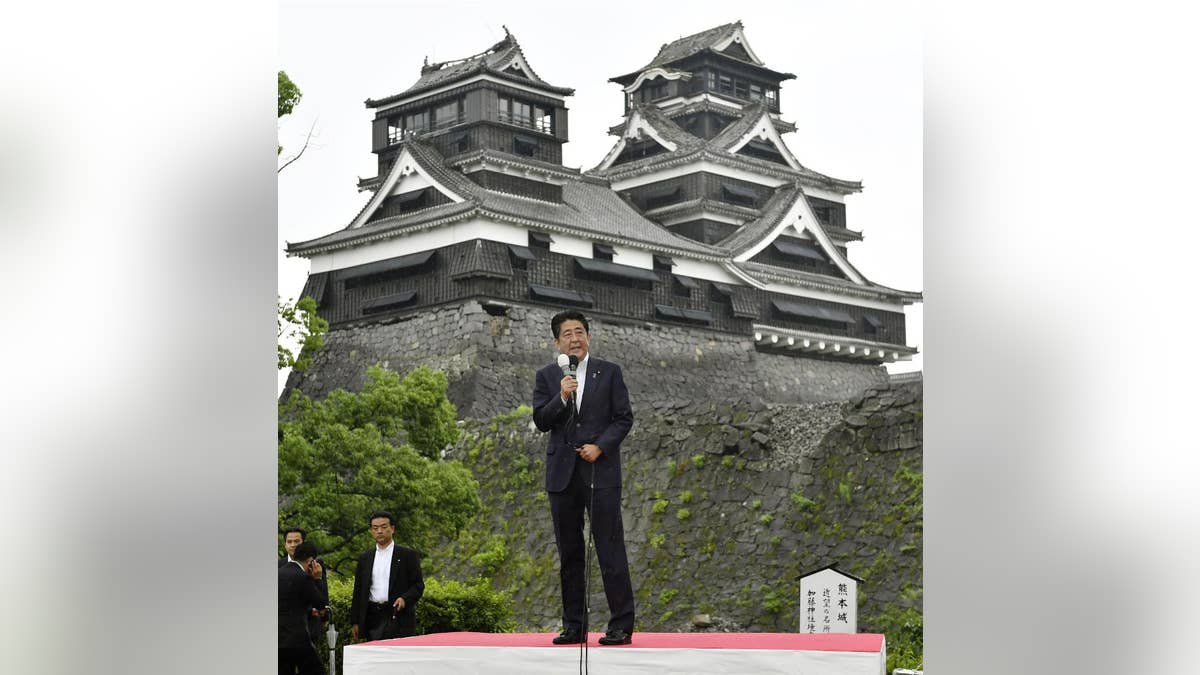
Japanese Prime Minister Shinzo Abe delivers a speech during an election campaign for his ruling Liberal Demoicratic Party in front of the earthquake damaged Kumamoto Castle in Kumamoto, southern Japan, Wednesday, June 22, 2016. Japan's parliamentary election campaign kicked off Wednesday in the first nationwide balloting after the voting age was lowered to 18 from 20. (Nobuki Ito/Kyodo News via AP) JAPAN OUT, CREDIT MANDATORY (The Associated Press)
TOKYO – Japan's parliamentary election campaign kicked off Wednesday in the first nationwide balloting after the voting age was lowered to 18 from 20.
Up for grabs in the July 10 vote are 121 seats, or half of the seats in Parliament's less powerful upper house.
The pro-business ruling party is hoping for a show of support for Prime Minister Shinzo Abe's "Abenomics" program to revive the economy, while the opposition is criticizing his efforts to have Japan play a bigger global security role.
Old-style loyalties have generally been critical in Japanese elections, so the addition of 2 million younger voters will be closely watched to see if there is any change to that.
Abe's ruling coalition holds a two-thirds majority in the more powerful lower house.
The splintered opposition sorely disappointed the public over what was widely seen as its fumbling response to the 2011 quake, tsunami and nuclear disaster in northeastern Japan when it was in power.
___
Follow Mari Yamaguchi on Twitter at twitter.com/mariyamaguchi
Her work can be found at http://bigstory.ap.org/content/mari-yamaguchi
